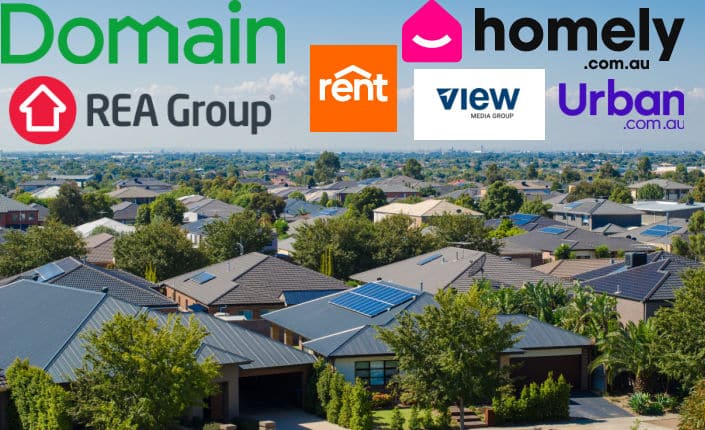
You may not have guessed it, but Australia has one of the most exciting and profitable real estate industries in the world.
Our job at Online Marketplaces is to collect and analyse data on real estate portals around the world. We thought we'd put some of that data together to bring you the ultimate visual guide to real estate portals in Australia, focusing on the biggest three names: REA, Domain, and Homely.
Realestate.com.au is not only the biggest portal in Australia, but one of the most powerful portals in the world.
Realestate.com.au (REA) consistently achieves huge profits and sits at a table with international portals like Zillow and Rightmove.
REA is controlled and operated by REA Group, a multinational property portal operator. In addition to Realestate.com.au, REA Group has market leadership in India (REA India), a significant stake in the market leader in Southeast Asia (PropertyGuru), and the #2 player in the USA (Realtor.com).
REA generated revenues of A$1.1 Billion in the 2023 financial year, slightly up from 2022:
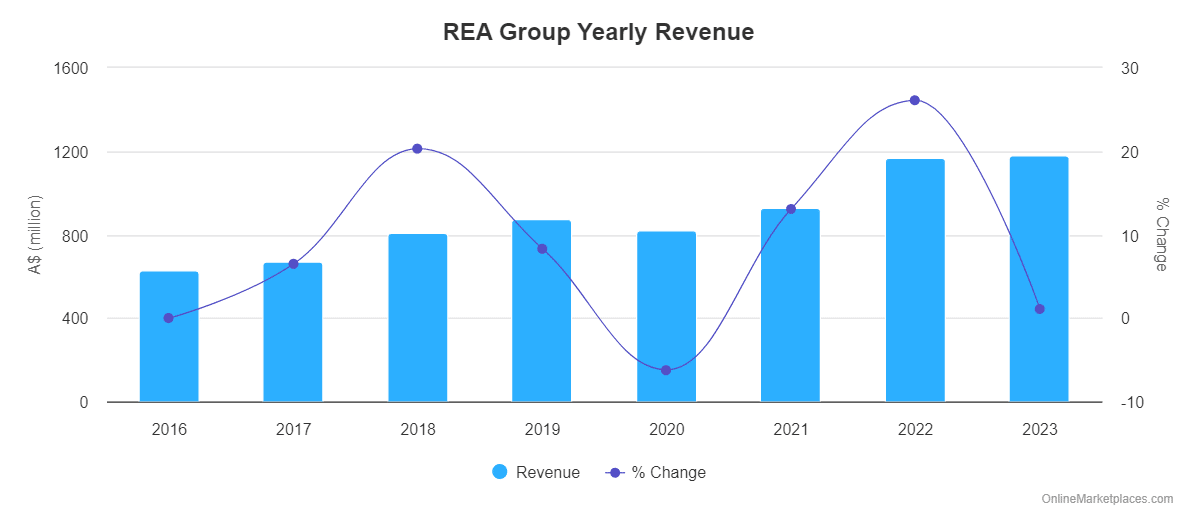
Domain is Australia's number two portal. It is also a publicly listed company that is majority-owned by Nine Entertainment—an Australian media company—which has a holding worth well over A$1Bn in Domain.
Domain earned A$345.7M in the 2023 financial year, slightly down from 2022:
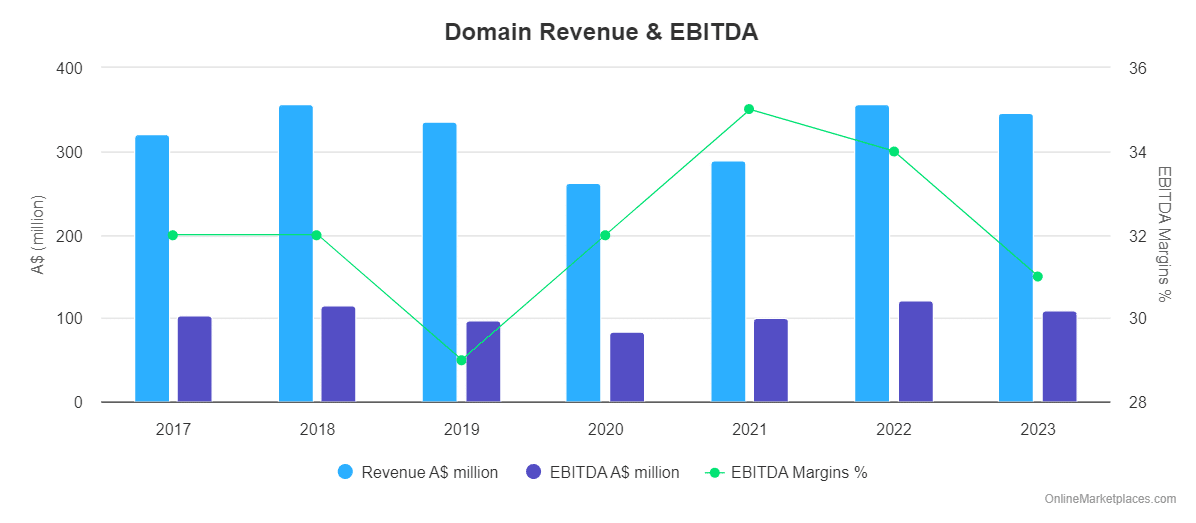
Homely is a privately owned company that is backed by the industry, with nearly 700 strategic partners around Australia.
Homely isn't obliged to share its earnings because it is privately owned, however, it became Australia's third-biggest portal (by web traffic and app visits) in January 2023 (see below).
REA is a clear market leader, while Homely recently overtook realestateview.com.au to become the third most-visited site in the country despite slightly fewer visits than a year ago:
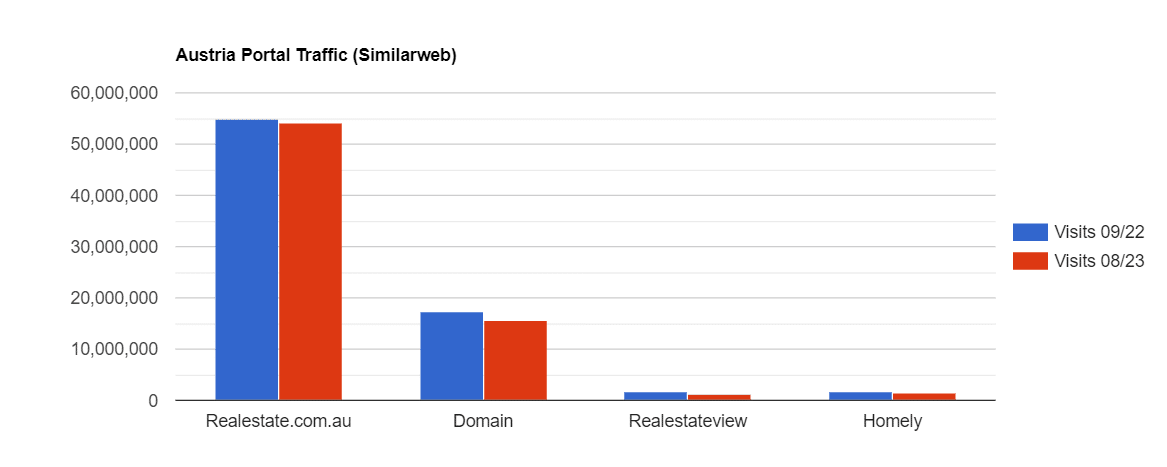
By our count, there are 23 property portals currently operating across Australia.
Some, such as retirement-focused Downsizing.com.au, focus on a particular niche, while others including Canberra-based portal Zango are purely regional real estate portals.
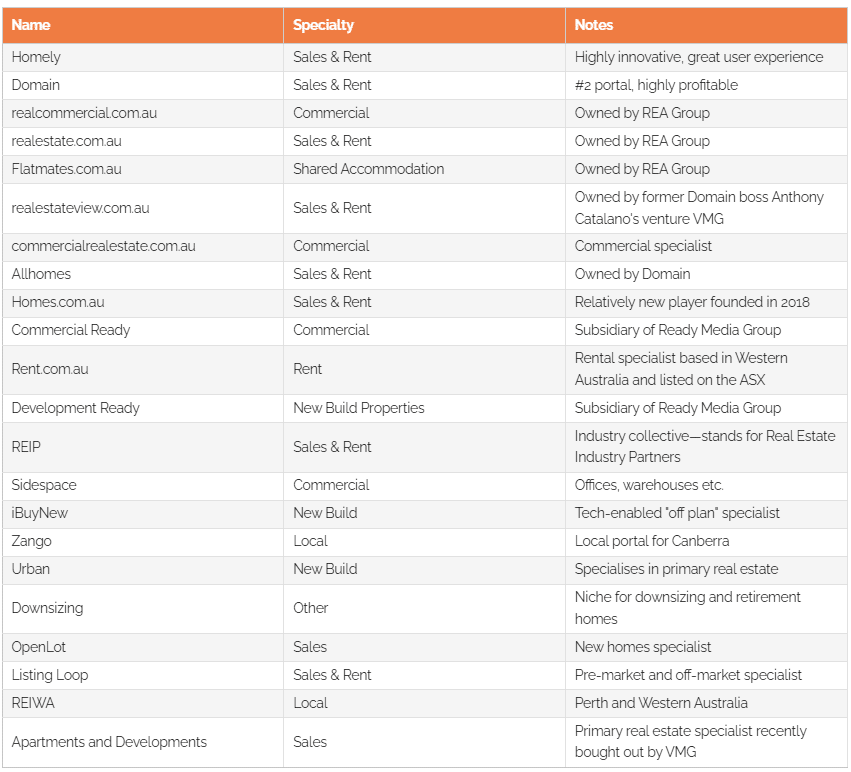
Australia is one of only two markets that we know of (along with Sweden) where the seller is responsible for paying the listing and advertising costs involved in publishing their property on a portal. Meanwhile, agents are effectively the advocates for the portals as they are responsible for explaining portal benefits to vendors.
This all makes partnerships between portals and agents incredibly important and means the dynamics between the two parties are slightly different to how they are in other markets.
Because agents don't foot the bill, they aren't as resentful of portal price increases as agents elsewhere! As Sadhana Smiles (CEO of agent group, REIP) told us in 2021, agents are heavily reliant on portals in Australia:
The short answer is that portals make money out of the homeowner, not the agent.
In Australia, real estate sellers pay portals like REA, Domain and Homely to advertise their properties, not the real estate agent—which is a highly unusual model compared with other portals worldwide.
This means the seller is paying for the property to be listed, for photography, floor plans and sign boards—everything involved in marketing a property.
Selling a home can become incredibly expensive for the seller—with the only upside that they will typically go through this process only two or three times in their lives.
But while sellers are the ones stumping up the cash for each property listing they publish, the agent continues to do most of the grunt work. And in most cases, agents have the choice to upgrade to paid subscriptions and will ultimately pass their costs on to the vendor.
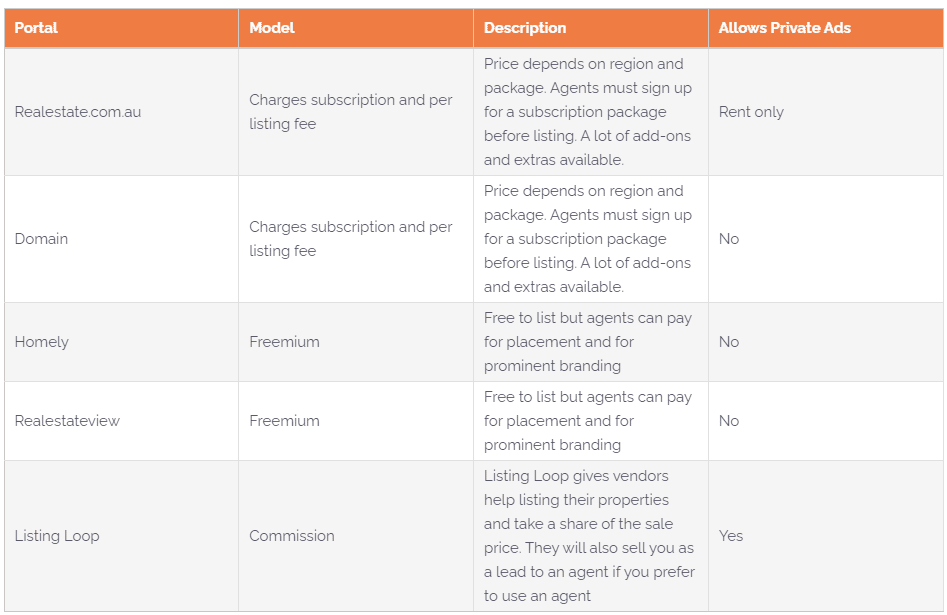
Homely is a "free-to-list" platform, but it has a Homely Plus offer for agents who want to advertise their stock more prominently.
Meanwhile, REA, Domain and other platforms regularly run auctions, with the portals taking a fee. Agents must subscribe to the portals before they can list their auctionable properties, including paying for listing fees and any extra marketing on top of that.
Another interesting example is Listing Loop, an alternative portal that offers a "no-sale, no charge" pricing model for sellers. Listing Loop will attempt to sell the property strictly off-market (without public advertising), with the seller only paying if Listing Loop finds a buyer.
Find out more about Listing Loop in Online Marketplaces' interview with CEO Rhett Dallwitz:
Selling a property can easily cost the vendor in excess of A$15,000—the majority of which will go to marketing the property. Other costs include conveyancing, staging, and agent fees (between 1.5% and 3% of the sale price).
For agents, meanwhile, REA and Domain got negative press in March 2023 when it emerged they would likely raise their prices for the first time since the pandemic, with agents' costs increasing by up to A$500 per listing in big markets like Sydney and Melbourne.
For reference, REA's premier product already costs real estate agents between A$2700-A$3400 per listing—which means a price hike could raise the cost of listing a property could realistically hit A$4000 for agents.
We published a report on the user experience on real estate portals around the world back in 2021. For this article, we went back and re-collected the data for some of the Australian portals (below) and it turns out that very little has changed since we released the study.
It seems that, in particular, the "draw-your-own search area" feature that is popular in North American and European portals is still a rarity in Australia.
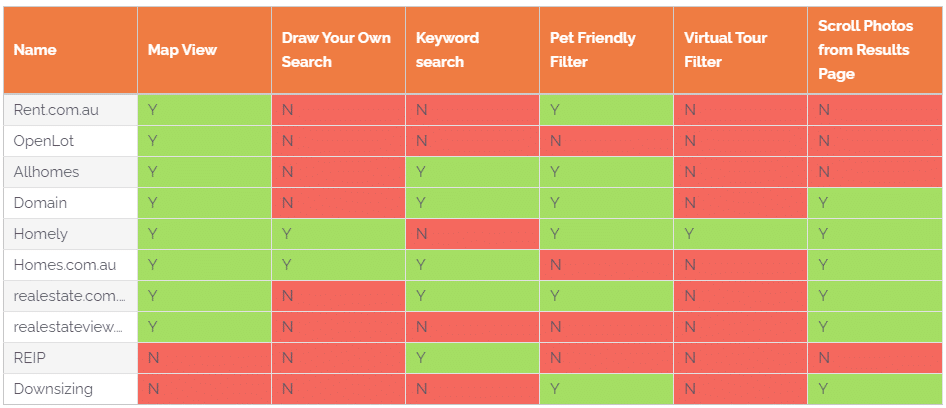
It's fascinating to see how different the share prices at these two companies are, with REA Group dwarfing Domain by an average of well over A$100 per share since January 2020.
Domain's share prices topped out at A$5.72 in October 2021, at an average of A$3.9 in the previous three years.
REA's share prices topped out at A$169 per share in June 2021 at an average price of A$130.3 per share. The graphic below shows you everything you need to know about the disparity between the market leader and its main challenger:
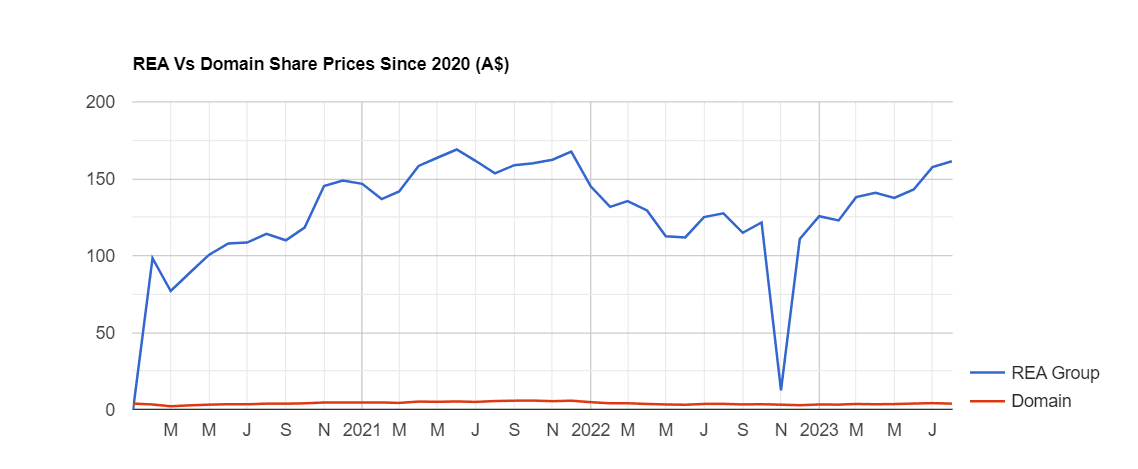
REA announced solid, unspectacular financial results this August, and also announced a string of AI integrations in June.
The Group also purchased the remaining shares in the "buy now, pay later" specialist CampaignAgent, of which it previously owned 27%.
Domain hit the headlines when it decided to put its joint venture mortgage business up for sale after disappointing full-year results.
Homely announced more than 30 new partnerships in August, taking its total number of strategic partnerships in Australia to nearly 700 businesses.
Read everything you need to know about the world of property portals for free on Online Marketplaces!